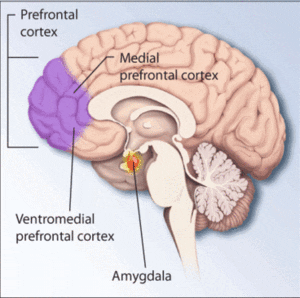
“Crisis” and “decline” are the words of the day in discussions of the humanities.
A primary stimulus for the concern is a startling factoid: only 8 percent of undergraduates major in humanities. But this figure is misleading. It does not include majors in closely related fields such as history, journalism and some of the social sciences. Nor does it take account of the many required and elective humanities courses students take outside their majors. Most important, the 8 percent includes only those with a serious academic interest in literature, music and art, not those devoted to producing the artistic works that humanists study.
Once we recognize that deeply caring about the humanities (including the arts) does not require majoring in philosophy, English or foreign languages, it’s not at all obvious that there is a crisis of interest in the humanities, at least in our universities.
Is the crisis rather one of harsh economic reality? Humanities majors on average start earning $31,000 per year and move to an average of $50,000 in their middle years. (The figures for writers and performing artists are much lower.) By contrast, business majors start with salaries 26 percent higher than humanities majors and move to salaries 51 percent higher.
But this data does not show that business majors earn more because they majored in business. Business majors may well be more interested in earning money and so accept jobs that pay well even if they are not otherwise fulfilling, whereas people interested in the humanities and the arts may be willing to take more fulfilling but lower-paying jobs. College professors, for example, often know that they could have made far more if they had gone to law school or gotten an M.B.A., but are willing to accept significantly lower pay to teach a subject they love.
This talk of “a subject they love” brings us to the real crisis, which is both economic and cultural (or even moral). The point of work should not be just to provide the material goods we need to survive. Since work typically takes the largest part of our time, it should also be an important part of what gives our life meaning. Our economic system works well for those who find meaning in economic competition and the material rewards it brings. To a lesser but still significant extent, our system provides meaningful work in service professions (like health and social work) for those fulfilled by helping people in great need. But for those with humanistic and artistic life interests, our economic system has almost nothing to offer.
The Latest Google Headlines on:
Humanities Crisis
[google_news title=”” keyword=”Humanities Crisis” num_posts=”10″ blurb_length=”0″ show_thumb=”left”]
The Latest Bing News on:
Humanities Crisis
- Debunking myths about community housing: What governments and the public should knowon May 8, 2024 at 11:16 am
Community housing is not a silver bullet to Canada’s housing crisis. But a strong community housing sector can play a significant role in providing all Canadians with the right to adequate housing.
- UNC Asheville students and instructors distraught over the future of liberal arts following budget deficiton May 7, 2024 at 6:18 am
The lecture “If you are the dealer, I’m out of the game.” Those were the words of Leonard Cohen as his song “You Want It Darker” filled the Lipinsky Auditorium. As it played students slowly filed in ...
- Despair and the Crisis of Meaningon May 3, 2024 at 11:00 am
Despair is a common experience. For some thinkers, despair arises from the desire not to be yourself. Nevertheless, it is possible to find joy in the face of profound suffering.
- China studies in crisis: Time for changeon May 2, 2024 at 11:57 am
The retreat from specialisation in China Studies has been the subject of a number of reports in the last few years.
- Center for Humanities hosts second annual greenhouse tour on psychedelic plantson April 29, 2024 at 5:00 pm
Partnered with the Center for Humanities, the Allen Centennial Gardens ran its second annual year of the Borghesi-Mellon Psychedelic Pasts, Presents, and Futures workshop’s interactive greenhouse tour ...
- Fireside chat with Anthony Faucion April 29, 2024 at 7:06 am
Renowned physician, immunologist and infectious disease researcher to discuss crisis decision-making with Valerie Biden Owens on May 3 ...
- Pay for scientists and those in the humanities should not vary muchon April 26, 2024 at 6:31 am
OPINIONBy Dr Davis Malowa NdanyiScholars have argued that the co-existence and collaboration of humanities and sciences as professions is a very critical and awesome stance which, if well integrated, ...
- Arvada Center Raises Awareness And Understanding Around Gaza And Israel Relations With Special Eventon April 25, 2024 at 6:24 pm
Arvada Center is hosting a Gaza/Israel event aimed at fostering understanding and dialogue. The event promises to offer insights into the complex issues surrounding the region.
- Pay for scientists and those in the humanities should not vary muchon April 25, 2024 at 5:00 pm
To resolve these crises, there is need to borrow expertise from both science and humanities shot of this the crisis may never be resolved. Ethical consideration: In studying many scientific ...
- If It Rights the Ship, Harvard Can Inform a New Renaissanceon April 21, 2024 at 9:04 pm
The people who help earn its reputation, and the people who live off it. With a combination of grace and grit, we can all be the former.
The Latest Google Headlines on:
The humanities
[google_news title=”” keyword=”the humanities” num_posts=”10″ blurb_length=”0″ show_thumb=”left”]
The Latest Bing News on:
The humanities
- Scientists map the lost 'Atlantis' continent that lies off Australiaon May 9, 2024 at 6:56 am
A new simulation reveals how Australia's first inhabitants migrated across Sahul, before it became modern-day Australia.
- Navigating The Fine Line: AI In Insurance And The Human Touchon May 9, 2024 at 6:00 am
If you lead an insurance firm or craft policies for one, let this be your call to action: Understand your customers' concerns and what they seek from AI in insurance.
- Where the human brain (still) has an edge over AIon May 9, 2024 at 6:00 am
How curiosity, emotional intelligence, and the capacity to learn from mistakes could present an enduring advantage over AI.
- The Impact of War on Animals in Conflict Zoneson May 9, 2024 at 5:51 am
Discover the untold story of how war affects not just people but their beloved pets and animals in conflict zones like Gaza.
- Elon Musk’s Neuralink encounters problem with first in-human brain implanton May 9, 2024 at 5:33 am
Elon Musk’s brain-chip startup said Wednesday that its first-ever implant has malfunctioned. Neuralink’s brain-computer interface, known as a BCI, was implanted into 29-year-old ...
- Neuralink's brain-chip implant malfunctioned and the company reportedly considered removing it from its human patienton May 9, 2024 at 3:25 am
Neuralink's human patient experienced a thread retraction in his brain-chip implant leaving it less effective, but tweaks later improved performance.
- Daughter follows parents' flight path to circus as the Ringling Bros. human cannonballon May 9, 2024 at 3:05 am
When the Ringling Bros. and Barnum & Bailey Circus comes to the Schott this weekend, Skyler Miser will carry on a tradition started by her parents.
- Hugh Grant eviscerates new iPad Pro ad for promoting the ‘destruction of the human experience’on May 8, 2024 at 11:06 pm
Hugh Grant has joined the backlash against Apple ’s new advert for the iPad Pro, which has drawn the ire of Hollywood creatives. The commercial, titled “Crush!”, sees various objects including a piano ...
- Apple’s New iPad Pro Ad Sparks Outrage as Hugh Grant and More Slam Tech Giant: ‘The Destruction of the Human Experience’on May 8, 2024 at 12:10 pm
Apple's commercial for the new iPad Pro prompted an angry backlash among Hugh Grant, Justine Bateman and others.
- TechCrunch Minute: Audible deploys AI-narrated audiobooks. Can it replace the human touch?on May 8, 2024 at 11:01 am
AI is coming for audiobooks, and that is not an entirely bad thing. But it is a cause of concern in the realm of audio titles ...









